The Role of Isolation in Crafting Terrifying Game Worlds
14 December 2024
When it comes to video games, there's one feeling that can send shivers down your spine faster than a sudden jump scare—a deep, creeping sense of isolation. You know what I’m talking about. It’s that unsettling quiet, the eerie feeling that you’re utterly alone in an unfamiliar, hostile world, and no one is coming to save you. This is the power of isolation in gaming, and when used correctly, it can transform a game into a spine-chilling masterpiece.
But how exactly does isolation work to create fear? Why do game developers intentionally make players feel like they’re stranded in the middle of nowhere? Let’s dive into this shadowy topic and uncover the secrets of how isolation brings terror to the heart of gaming.
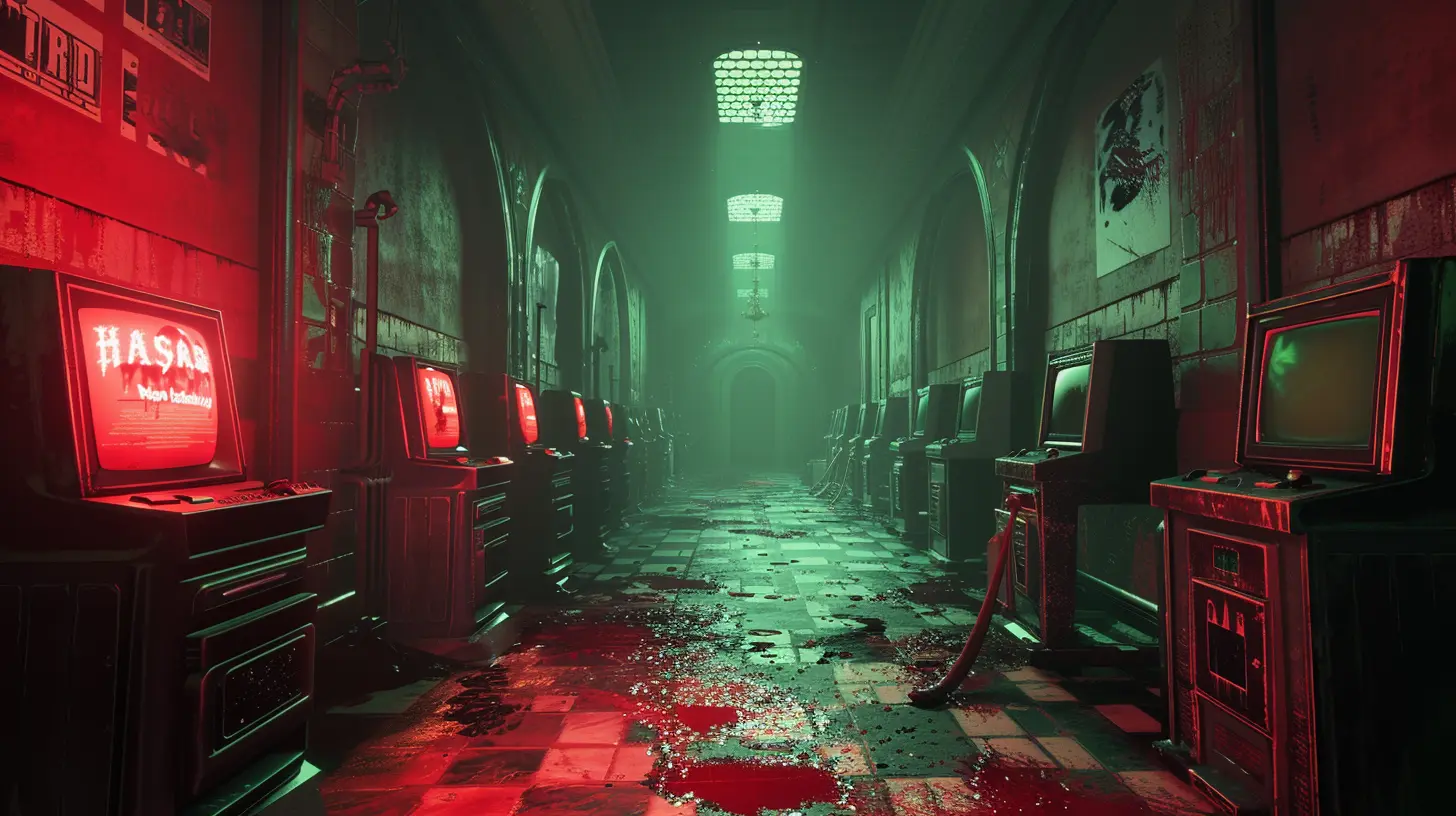
Why Isolation Is So Effective in Horror Games
Isolation isn’t just a trope in video games—it’s the foundation for some of the scariest experiences you’ll ever have in front of a screen. Think about it: when you're isolated, you're left to your own devices. There’s no one to talk to, no one to help, and no safety net. It’s just you and the unknown. And let’s face it, the unknown is terrifying.When developers strip away the comfort of companionship and familiar surroundings, they amplify your vulnerability. Isolation taps into our primal fears, the ones buried deep in our DNA. After all, back in the day, being alone often meant being easy prey for predators. In the digital age, that’s translated into being hunted by monsters, ghosts, or even your own mind.
The Psychology Behind It
Ever notice how being alone in the dark feels scarier than being in the same dark room with a friend? That’s psychology at work. Isolation triggers feelings of helplessness and uncertainty. It forces us to confront our worst fears without a buffer.In gaming, this sense of isolation is often heightened through clever game design. Picture a protagonist lost in a decaying mansion with no way to communicate with the outside world. Every creak of the floorboards and every flicker of the lights feels more intense because you're experiencing it alone. Without allies, the stakes feel so much higher—it's just you against whatever horrors lie ahead.
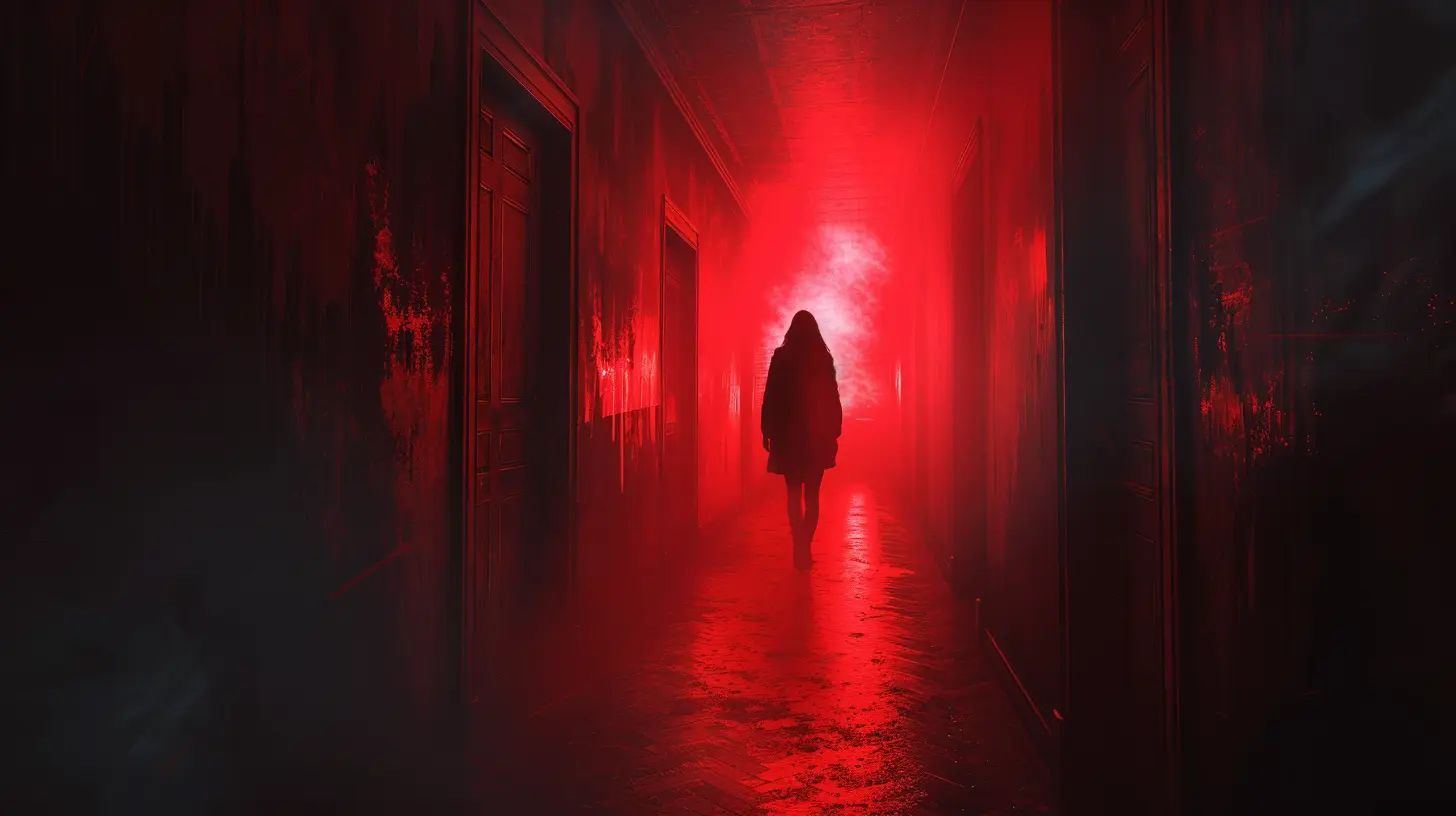
Iconic Examples of Isolation in Gaming
Over the years, plenty of games have used isolation as the blueprint for terror. Let’s take a look at some standout examples and see how they perfected the art of loneliness.1. Silent Hill
Could we talk about isolation in games without mentioning Silent Hill? Absolutely not. This iconic survival horror series practically wrote the book on using isolation to create dread. The fog-drenched streets of Silent Hill are eerily quiet, leaving you with nothing but the sound of your own footsteps and the occasional, distant moaning of… something.The isolation in Silent Hill isn’t just physical—it’s emotional. The protagonists are often dealing with personal traumas, which makes their solitude feel even heavier. The town itself seems alive, as if it’s feeding on their loneliness and fear. Spooky, right?
2. Alien: Isolation
This game has "isolation" right in the title, and for good reason. Alien: Isolation drops you into the cold, metallic corridors of a derelict space station with a xenomorph. Oh, and there’s no one to help you. It's just you, a few tools, and your wits against one of the most terrifying creatures in sci-fi history.The developers nailed the feeling of being alone in space, which is arguably one of the most isolating environments imaginable. The constant tension of the xenomorph hunting you is amplified by the fact that you have no backup—there’s no cavalry coming to rescue you.
3. The Forest
Survival horror takes on a whole new meaning in The Forest. After crashing onto a remote island, you’re left to fend for yourself while being stalked by cannibalistic mutants. The beauty of this game is how it lulls you into a false sense of security. During the day, you can almost forget how alone you are. But at night? That’s when the real terror kicks in.The isolation in The Forest isn’t just external—it’s internal. You’re constantly grappling with the mental strain of surviving alone and figuring out what happened to your missing child. The game combines environmental and emotional isolation to create a deeply unsettling experience.
4. Subnautica
Isolation isn’t limited to haunted houses and creepy forests. Subnautica proves that even the underwater world can feel suffocatingly lonely. Stranded on an alien ocean planet, you’re forced to dive deep into the unknown, with only your scanner and oxygen tank for company.The game’s vast, alien ocean emphasizes how truly alone you are. Every shadow beneath you could be a harmless fish… or a predator waiting to strike. The isolation is both thrilling and terrifying, and it’s a huge part of what makes Subnautica so memorable.
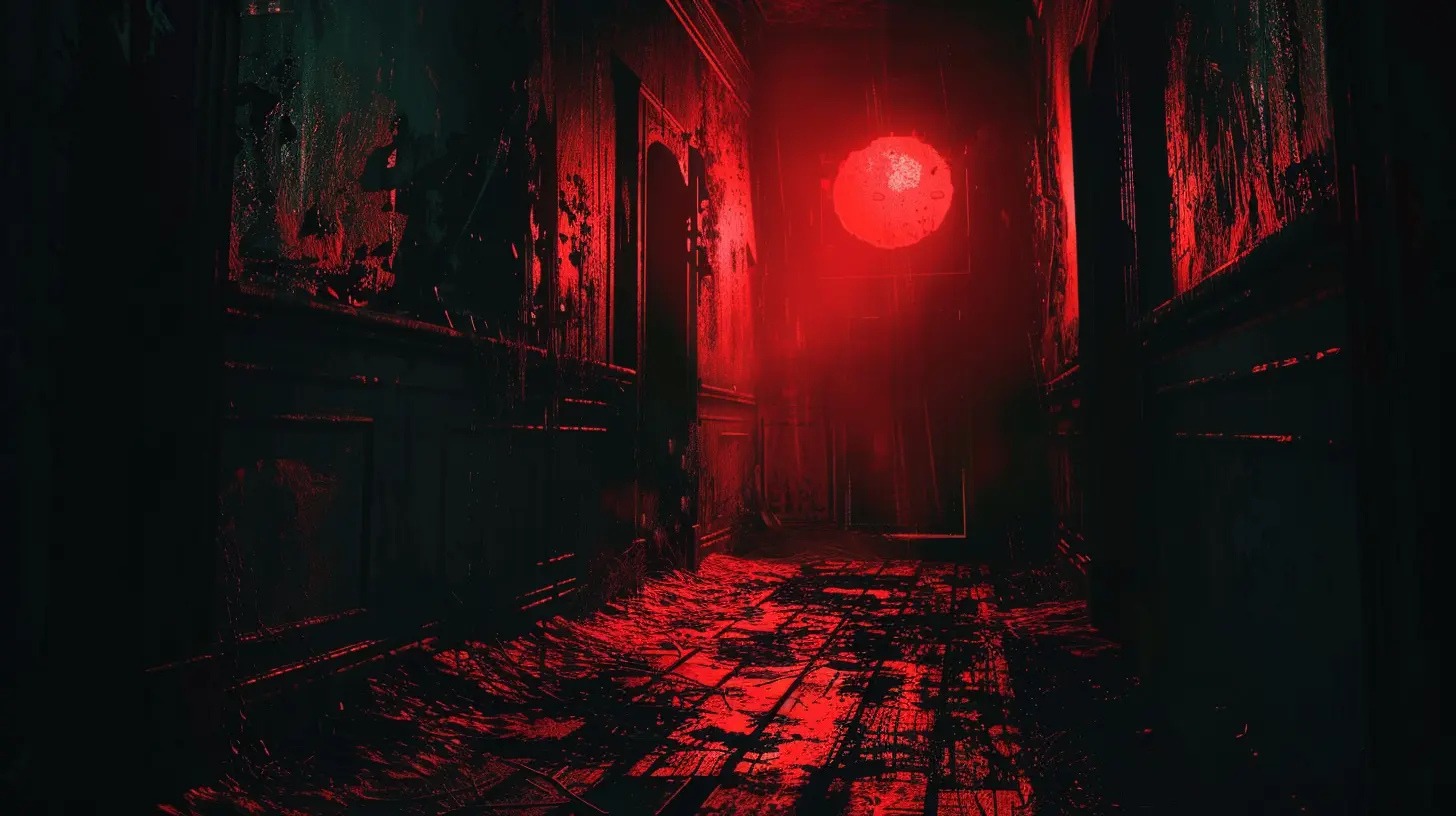
The Tools Developers Use to Create Isolation
So, how do developers actually make you feel isolated in a game? It’s not just about throwing you into an empty map and calling it a day. Crafting a truly terrifying sense of isolation requires a combination of smart design choices and psychological tricks. Here’s how they do it:1. Sound Design
Silence can be deafening. Developers use sound (or the lack of it) to amplify your sense of loneliness. Think about how unsettling it is when the background music fades, leaving you with only the sound of your own footsteps or breathing. Even subtle noises like the hum of fluorescent lights or distant echoes can make you feel completely alone.2. Limited Resources
Nothing heightens the feeling of isolation like knowing you’re running out of supplies. Low ammo, scarce health kits, or dwindling oxygen levels can make you hyperaware of your surroundings. It’s a reminder that there’s no one else around to help if things go south.3. Minimal NPC Interaction
Human interaction is comforting, even in small doses. That’s why games that focus on isolation often limit your encounters with other characters. And when you do meet someone, they’re often unreliable, hostile, or just as lost as you are.4. Environmental Design
From abandoned hospitals to vast, empty wastelands, the environments in isolation-focused games are designed to make you feel small and insignificant. The world itself often feels like an antagonist, with claustrophobic corridors or open, uncharted landscapes that remind you how alone you are.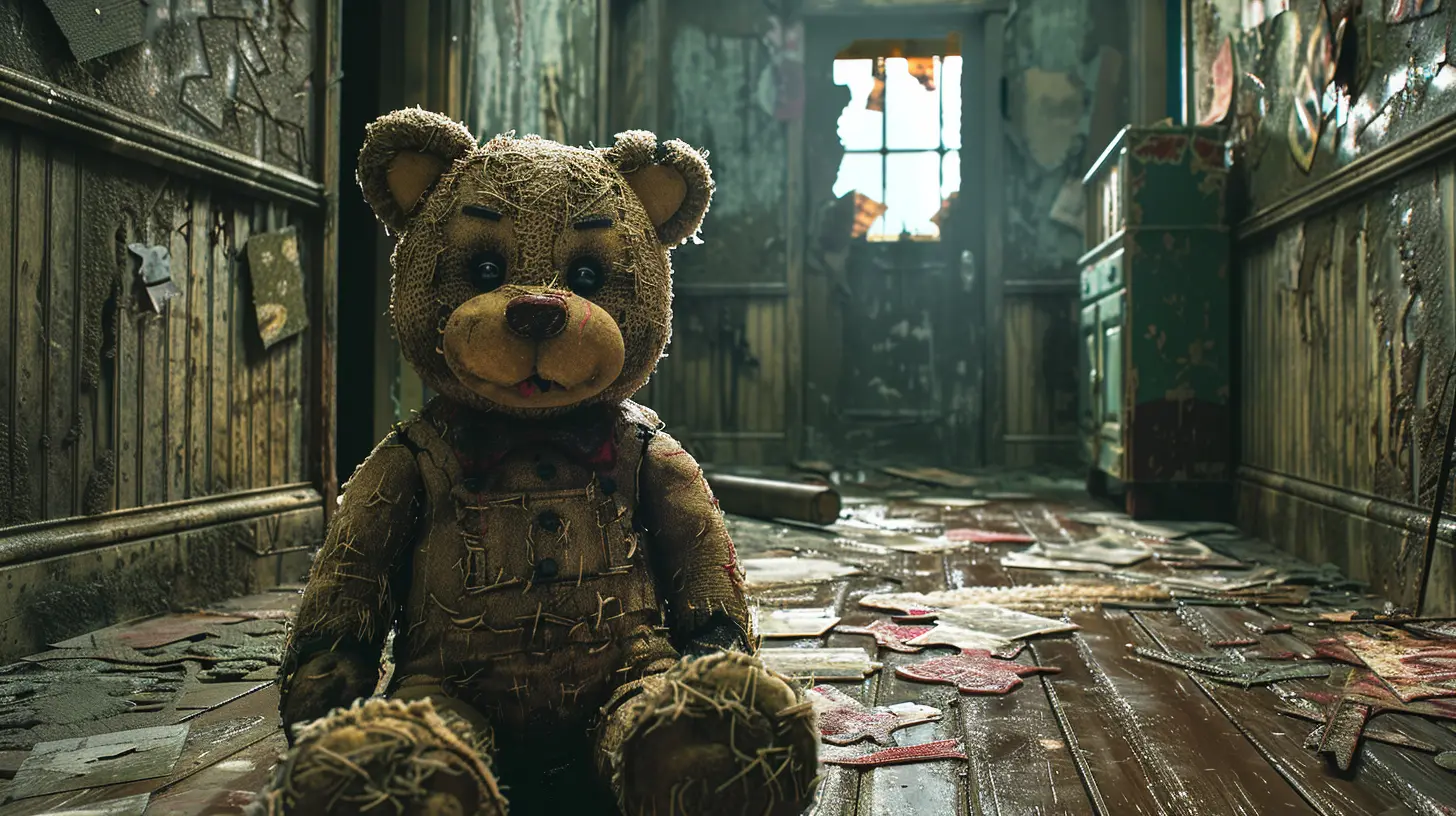
How Isolation Enhances Immersion
One of the coolest things about isolation in games is that it pulls you deeper into the experience. When you’re playing a game that makes you feel truly alone, you’re more likely to forget about the outside world. It becomes just you and the game. That level of immersion can make the scares hit harder and the stakes feel higher.For example, in Amnesia: The Dark Descent, the isolation isn’t just a narrative tool—it’s a gameplay mechanic. You’re constantly on edge, knowing you have no weapons or allies to protect you. The game sucks you into its world, making every moment feel personal and terrifying.
The Risks of Isolation in Game Design
Of course, not every game nails isolation perfectly. When done poorly, it can lead to frustration or boredom. A game with an empty, lifeless world might feel isolating, but not in a good way—it might just feel like bad design. The key is to strike a balance between making the player feel lonely and keeping the game engaging.Games like Dark Souls do this masterfully by combining isolation with challenge. Sure, you’re alone in a desolate world, but there’s always something to fight, explore, or discover. This keeps the player hooked while still maintaining that eerie sense of solitude.
Why We Crave the Feeling of Isolation in Games
Here’s the big question: if isolation is so unsettling, why do we love it so much in games? Well, it’s kind of like watching a horror movie. We enjoy scaring ourselves in a controlled environment because it’s thrilling. Isolation forces us to confront our fears, solve problems, and rely on our instincts. It’s empowering in a weird, masochistic way.Plus, there’s something undeniably satisfying about overcoming the odds when you’re all alone. Surviving a game that makes you feel isolated is like climbing a mountain—it’s tough, but the sense of accomplishment at the top is unbeatable.
Conclusion
Isolation is, without a doubt, one of the most powerful tools in a game developer’s arsenal. It taps into our deepest fears, heightens tension, and creates immersive, unforgettable experiences. Whether it's the foggy streets of Silent Hill, the cold emptiness of space, or the endless ocean in Subnautica, isolation has a unique way of getting under our skin.So the next time you’re wandering through an abandoned asylum or floating alone in the vacuum of space, remember: that pit in your stomach? That’s the power of isolation—working its terrifying magic.
all images in this post were generated using AI tools
Category:
Horror GamesAuthor:

Greyson McVeigh
Discussion
rate this article
15 comments
Regina Riggs
Isolation intensifies immersion effectively.
February 3, 2025 at 3:54 PM

Greyson McVeigh
Thank you! Isolation indeed enhances the sense of immersion, allowing players to fully experience the tension and fear within the game world.
Caleb McClary
Great article! Isolation truly enhances the terror in gaming, immersing players in chilling atmospheres. It’s fascinating how developers use solitude to amplify fear and vulnerability. Can’t wait to see more games explore this element creatively!
February 1, 2025 at 3:28 PM

Greyson McVeigh
Thank you! I'm glad you enjoyed the article. Isolation is indeed a powerful tool for creating immersive and terrifying experiences in games. Exciting times ahead for developers exploring this theme!
Shiloh Hunter
Isolation in games? It’s like having a puppy in a thunderstorm—super cute until you realize you’re alone with your existential dread and a killer lurking behind the digital curtains! Let’s play!
January 29, 2025 at 3:37 AM

Greyson McVeigh
Absolutely! Isolation amplifies tension and fear, making players confront both the game’s horrors and their own feelings of solitude. It's what transforms a cute experience into a chilling journey!
Mae Carey
In solitude's embrace, dread whispers bloom, crafting worlds where shadows breathe and silence looms.
January 24, 2025 at 4:41 PM

Greyson McVeigh
Thank you! You've beautifully captured the essence of how isolation can intensify fear and create immersive experiences in game worlds.
Savannah Moses
Isolation amplifies tension in gaming, enhancing player immersion and fear. By stripping away familiar comforts, developers create haunting atmospheres where solitude builds suspense, deepening the psychological impact and engagement in terrifying game worlds.
January 21, 2025 at 4:29 AM

Greyson McVeigh
Absolutely! Isolation intensifies tension and fear, making players feel truly immersed in the haunting atmospheres. This deliberate absence of comfort significantly enhances psychological engagement in terrifying game worlds.
Fable Whitaker
Loved this article! Isolation really heightens the tension in games, making every shadow and creak feel so much more intense. It’s fascinating to see how developers use solitude to enhance our gaming experience. Keep it up!
January 19, 2025 at 4:19 AM

Greyson McVeigh
Thank you so much for your kind words! I’m glad you enjoyed the article and appreciate your insights on the impact of isolation in gaming.
Christa Bass
Oh, nothing says "fun" like wandering alone in a pixelated nightmare, right? Who needs friends when you can have an all-consuming dread and echoing silence? Isolation in games: because sometimes, the best co-op is just you, a flashlight, and your rapidly beating heart!
January 16, 2025 at 5:13 PM

Greyson McVeigh
Absolutely! Isolation amplifies fear, making every step feel heavy with tension. It transforms the virtual space into a personal nightmare, heightening the player’s experience and connection to the game’s atmosphere.
Harmony Collins
Embrace the power of isolation! It fuels creativity and immerses players in haunting worlds, revealing the beauty in fear. Game on!
January 14, 2025 at 4:56 PM

Greyson McVeigh
Absolutely! Isolation intensifies emotions, enhances immersion, and encourages creativity, making terrifying game worlds even more compelling. Game on indeed!
Rhea McNulty
Great insights! Isolation really amps up the suspense in games. It’s fascinating how empty environments can evoke such strong emotions and heighten the thrill of exploration. Keep it up!
January 11, 2025 at 4:46 AM

Greyson McVeigh
Thank you! I'm glad you found the insights valuable. Isolation truly is a powerful tool in creating immersive and thrilling experiences in games.
Selene Cummings
This article beautifully captures the profound impact of isolation in gaming. It’s remarkable how solitude can amplify fear and tension, drawing players deeper into haunting worlds. Your insights resonate deeply with those of us who seek both escape and reflection in our gaming experiences. Thank you for sharing!
January 9, 2025 at 3:28 AM

Greyson McVeigh
Thank you for your thoughtful insight! I'm glad you found the article resonates with your gaming experiences. Isolation truly enhances the emotional depth of these worlds.
Leslie Green
Isolation can amplify fear in games by intensifying the player's vulnerability. When you're alone, every sound and shadow becomes a source of anxiety. It's brilliantly effective.
January 5, 2025 at 5:03 PM

Greyson McVeigh
Thank you! You're absolutely right—isolation heightens vulnerability, making every detail in the environment feel more menacing and enhancing the overall horror experience.
Liora McGrady
Isolation isn't just a setting; it’s the heartbeat of horror. If you can’t feel the chill creeping down your spine in a virtual void, are you even playing? Embrace solitude—it's where nightmares thrive! 🎮👻
December 31, 2024 at 5:25 AM

Greyson McVeigh
Absolutely! Isolation amplifies tension and fear, making players confront their own vulnerabilities. It's a powerful tool in horror gaming that transforms solitude into a chilling experience. Thank you for capturing that essence!
Astra Gomez
Insightful exploration of isolation's impact on horror game environments. Great read!
December 25, 2024 at 4:52 PM

Greyson McVeigh
Thank you! I'm glad you found the exploration of isolation in horror games engaging. Your feedback means a lot!
Vance Barnes
Isolated worlds: where fear meets cozy gaming!
December 15, 2024 at 5:36 AM

Greyson McVeigh
Thank you! The contrast between isolation and cozy elements can enhance the tension, making players feel both vulnerable and comforted, heightening the overall experience.
Marley Ramirez
Isolation amplifies fear, creating immersive experiences that linger long after gameplay ends.
December 14, 2024 at 3:35 AM

Greyson McVeigh
Thank you for your insight! Isolation indeed intensifies fear, enhancing the emotional impact and lasting impressions of gameplay.
MORE POSTS
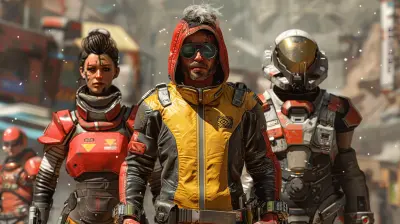
The Relationship Between Game Mods and Microtransactions

What Makes a Gaming Achievement Truly Satisfying

Best Practices for Starting Your Own Gaming Forum

Building Engaging Game Narratives: Crafting Stories That Hook Players

The Psychology Behind Forum Arguments and Flame Wars

The Role of Choice and Consequence in Narrative Gaming

Rediscovering the Magic of 16-Bit Adventures

Best Cross-Platform Games for Families to Play Together

Social Games That Help Break the Ice and Build New Friendships

Is Your PC Prepared for the Hottest Games of the Year?